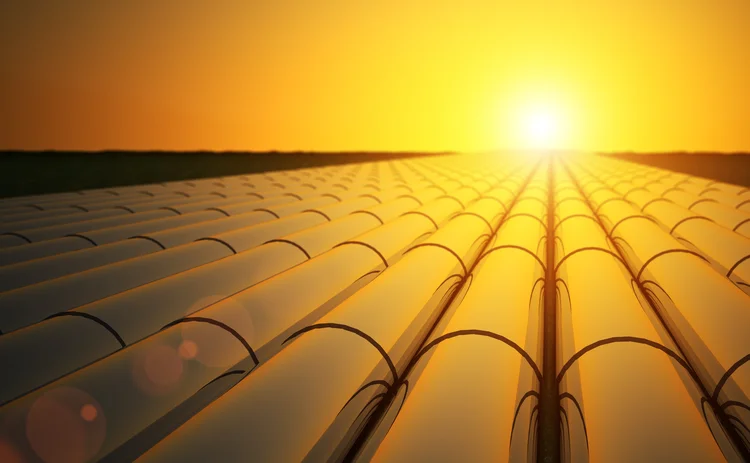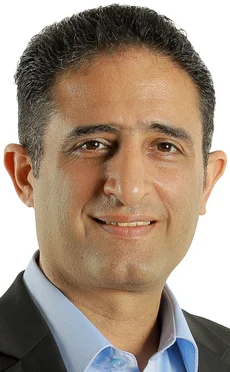
Natural gas/LNG house of the year: ENGIE


ENGIE’s Global Energy Management and Sales’ (GEMS’) more than 800 large accounts and 190,000-plus business-to-business clients have been able to rely on the company’s long-term expertise and know-how over the previous 12 months. This has been characterised by extreme energy market volatility as outbreaks of Covid-19 continued, Russia invaded Ukraine, and fears mounted over rising global inflation and interest rates.

“To meet clients’ ever-growing demand for competitive, low-carbon, reliable energy, we leverage 20-plus years of financial and physical expertise to provide best-in-class services in risk management, market access and global energy commodities supply, and we developed an integrated approach to decarbonisation to support our clients’ affordable transitions to net zero at every step of their journey,” says Varun Gujral, chief executive officer, Asia-Pacific (Apac), ENGIE GEMS.
During 2021, ENGIE GEMS remained committed to ensuring security of supply, helping its clients navigate this extreme volatility, all while expanding its business, organisation and natural gas/liquefied natural gas (LNG) portfolio. In parallel, the company maintained its commitment to net zero, developing low-carbon gas solutions, responsible gas sourcing and traceability, thus meeting clients’ growing demand for tailored decarbonisation solutions.
ENGIE GEMS’ Apac client base, revenue and trade volumes expanded in 2021 compared with 2020. Such volatility in the market provided new opportunities with a rebalancing of its portfolio to gas derivatives, which accelerated strongly because of increasing demand in Asia. Among many highlights over the previous 12 months were the Japan Korea Marker (JKM)-indexed long-term and large supply deals for key clients, competitive market-making on title transfer facility/total fuel used spread and higher volumes in the Japan Crude Cocktail – illiquid and complex to model due to changing variables. The company also initiated discussions with clients to provide physical deals with embedded derivatives to help them switch from oil to the JKM index. ENGIE further supported key clients in Apac to market their physical cargoes linked to illiquid European indexes.
Additionally, ENGIE GEMS offers digital platforms such as EnergyScan, which provides market intelligence that has been rolled out to a large client base in Apac. After a successful launch in Europe, ENGIE is now launching the ENGIE Global Market Access (EGMA) electronic trading platform in Apac, with EGMA offering clients the ability to trade directly on most vanilla products, with all executions automated through the platform.
ENGIE’s global LNG business is managed from its London and Singapore platforms, with teams located across three time zones: the US, Europe and Asia. True to its mission to pursue its developments in gas as a key partner of the energy transition and to ensure security of supply, the company signed large off-take LNG contracts with several producers. Additional regasification capacities were acquired at Eemshaven in the Netherlands and Fos Cavaou in France for the longer term, complemented by capacities at Zeebrugge in Belgium and South Hook in the UK, which were bought on a spot basis. This allows ENGIE to import LNG cargoes at various entry points in Europe, further mitigating supply risks for its clients and portfolio, especially during the winter period.
“We have been proactive in responding to the crisis, securing long-term LNG supplies, re-gas and shipping capacities in time, increasing our ability to better manage performance and market risks, making us a very reliable partner for our clients,” says Ralf Dickgreber, head of global LNG, ENGIE GEMS.
Booking Fos-Tonkin capacities also boosted the company’s small-scale LNG business, trading approximately 1.2 terawatt hours (TWh) (against the 700 gigawatt hours per year target). While diversifying its gas sourcing, ENGIE also worked at reducing the overall carbon footprint of its gas business. As part of this decarbonisation process, the company launched responsibly sourced gas in the US, certified by Trustwell. It notably signed transactions with Range Resources, also involving its blockchain-based traceability platform, The Energy Origin (TEO).
Gas traceability being a key component of TEO (recently certified by Bureau Veritas), the solution had successful applications in Europe as well. One such example was a two-year, 2.8TWh-equivalent gas origin certificate for a Swiss energy supplier seeking sourcing guarantees from lower-emission Norwegian fields. Green gases, such as green hydrogen, green ammonia and biomethane, remain a core focus for ENGIE to ensure the energy transition successfully reaches net-zero emissions.
In this context, ENGIE’s capabilities expanded in Europe, with a partnership with Equinor that recorded positive developments, notably including the H2BE feasibility study in Belgium with potential hydrogen offtakers. In Australia, ENGIE partnered with Yara, one of the largest players in the ammonia and fertiliser market, to scale up a plant in Western Australia to produce green ammonia, which is expected to complete phase one in 2024. Such projects will allow ENGIE to expand its capabilities in Asia for green gas supply.
Sponsored content
Copyright Infopro Digital Limited. All rights reserved.
As outlined in our terms and conditions, https://www.infopro-digital.com/terms-and-conditions/subscriptions/ (point 2.4), printing is limited to a single copy.
If you would like to purchase additional rights please email info@risk.net
Copyright Infopro Digital Limited. All rights reserved.
You may share this content using our article tools. As outlined in our terms and conditions, https://www.infopro-digital.com/terms-and-conditions/subscriptions/ (clause 2.4), an Authorised User may only make one copy of the materials for their own personal use. You must also comply with the restrictions in clause 2.5.
If you would like to purchase additional rights please email info@risk.net